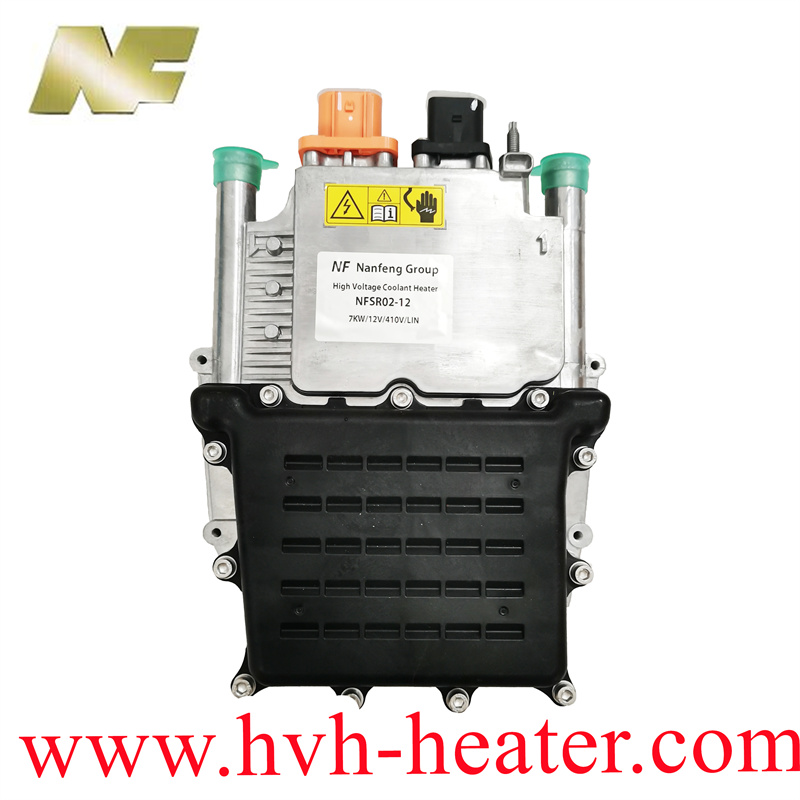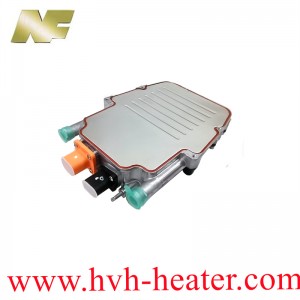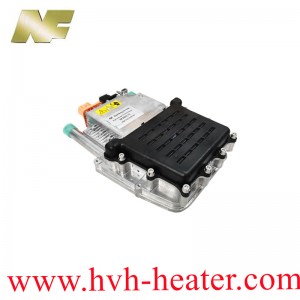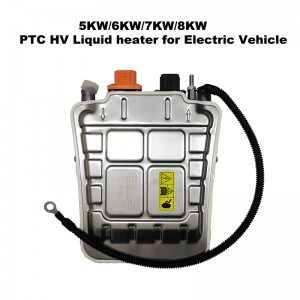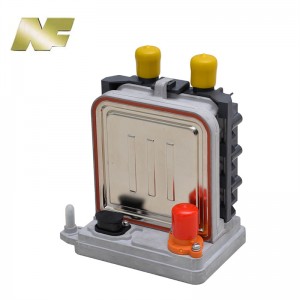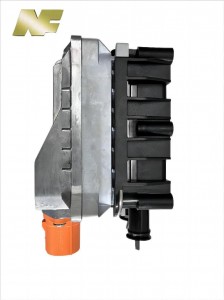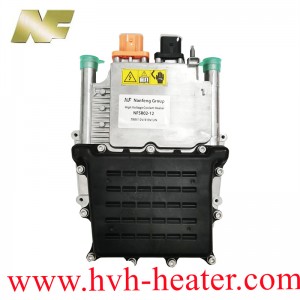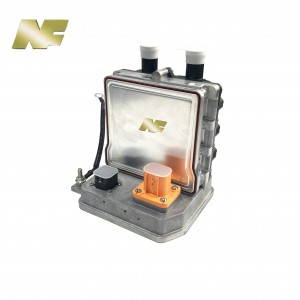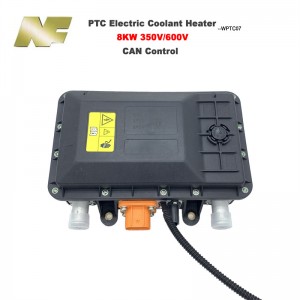NF High Voltage Coolant Heater 7KW 410V PTC Coolant Heater With LIN
Description
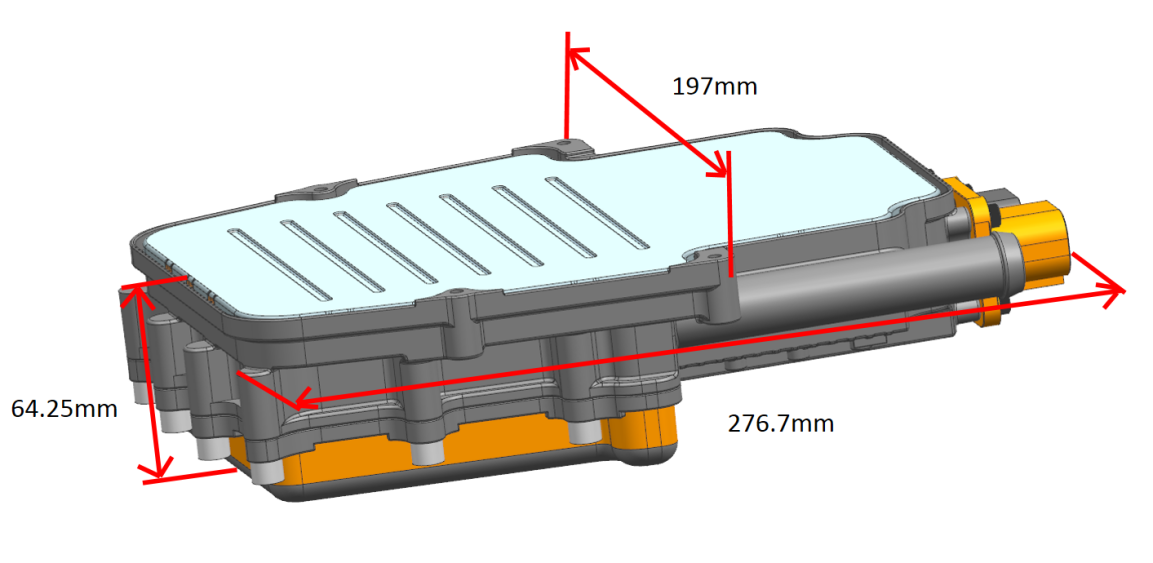
As the automotive industry continues its move toward electric vehicles (EVs), the demand for innovative heating solutions has increased significantly. PTC (Positive Temperature Coefficient) heaters are one of the key technologies that play a key role in this transition. In this blog, we will explore the evolution of PTC heaters in the automotive industry, their role in electric vehicles, and their impact on the overall driving experience.
PTC coolant heaters have been a staple in the automotive industry for decades, providing reliable, efficient heating solutions for a variety of applications. Their importance has become even more important in recent years as automakers shift their focus toward electric vehicles. Unlike traditional internal combustion engine vehicles, electric vehicles have no waste heat source that can be used to heat the cabin. Therefore, there is a growing demand for efficient and cost-effective electric heating solutions.
This is where PTC heaters come into play. These electric heating elements have the unique ability to self-regulate their temperature, making them efficient and safe to use in automotive applications. This self-regulation is achieved through the PTC effect, where the resistance of the heater increases with increasing temperature. This means that as the heater heats up, its power consumption decreases, optimizing energy use and preventing overheating.
In the field of electric vehicles, PTC heaters offer several advantages over traditional heating solutions. One of the main advantages is its rapid heating capability, which can quickly warm the cab in cold weather conditions. This is especially important for electric vehicles as it helps minimize the impact of heating on the vehicle's overall range. Additionally, EV PTC heaters are compact and lightweight, making them ideally suited to the space and weight constraints of electric vehicles.
Advances in technology and materials have also promoted the development of PTC heaters in the automotive industry. Modern PTC heaters are designed to be extremely durable and reliable, with long service life and minimal maintenance requirements. In addition, they operate silently, providing electric vehicle owners with a comfortable and quiet driving experience.
Additionally, PTC heaters are being integrated with advanced control systems to further optimize their performance and energy efficiency. By utilizing sensors and sophisticated algorithms, these systems can adjust the heater's output based on the cabin's specific heating needs, as well as factors such as outside temperature and vehicle usage patterns. This level of intelligent heating control not only improves occupant comfort but also helps improve the vehicle's overall energy efficiency.
Looking ahead, the role of PTC heaters in the automotive industry is expected to continue to grow, especially as electric vehicles become more common. As automakers strive to improve the range, performance and comfort of electric vehicles, the need for high-performance heating solutions will only increase. PTC heaters are expected to play a central role in meeting these needs, providing a versatile and reliable means of cabin heating for electric vehicles.
In conclusion, electric PTC heaters have experienced significant growth in the automotive industry, driven by the transition to electric vehicles and the need for efficient heating solutions. Its unique self-adjusting features, rapid heating performance and intelligent integration with vehicle control systems make it ideal for meeting the demanding requirements of electric vehicles. As technology and materials continue to advance, PTC heaters will continue to be at the forefront of automotive heating innovation, shaping the future of electric vehicle comfort and efficiency.
Technical Parameter
| Electric power | ≥7000W, Tmed=60℃; 10L/min, 410VDC |
| High voltage range | 250~490V |
| Low voltage range | 9~16V |
| Inrush current | ≤40A |
| Control mode | LIN2.1 |
| Protection level | IP67&IP6K9K |
| Working temperature | Tf-40℃~125℃ |
| Coolant temperature | -40~90℃ |
| Coolant | 50 (water) + 50 (ethylene glycol) |
| Weight | 2.55kg |
Installation example
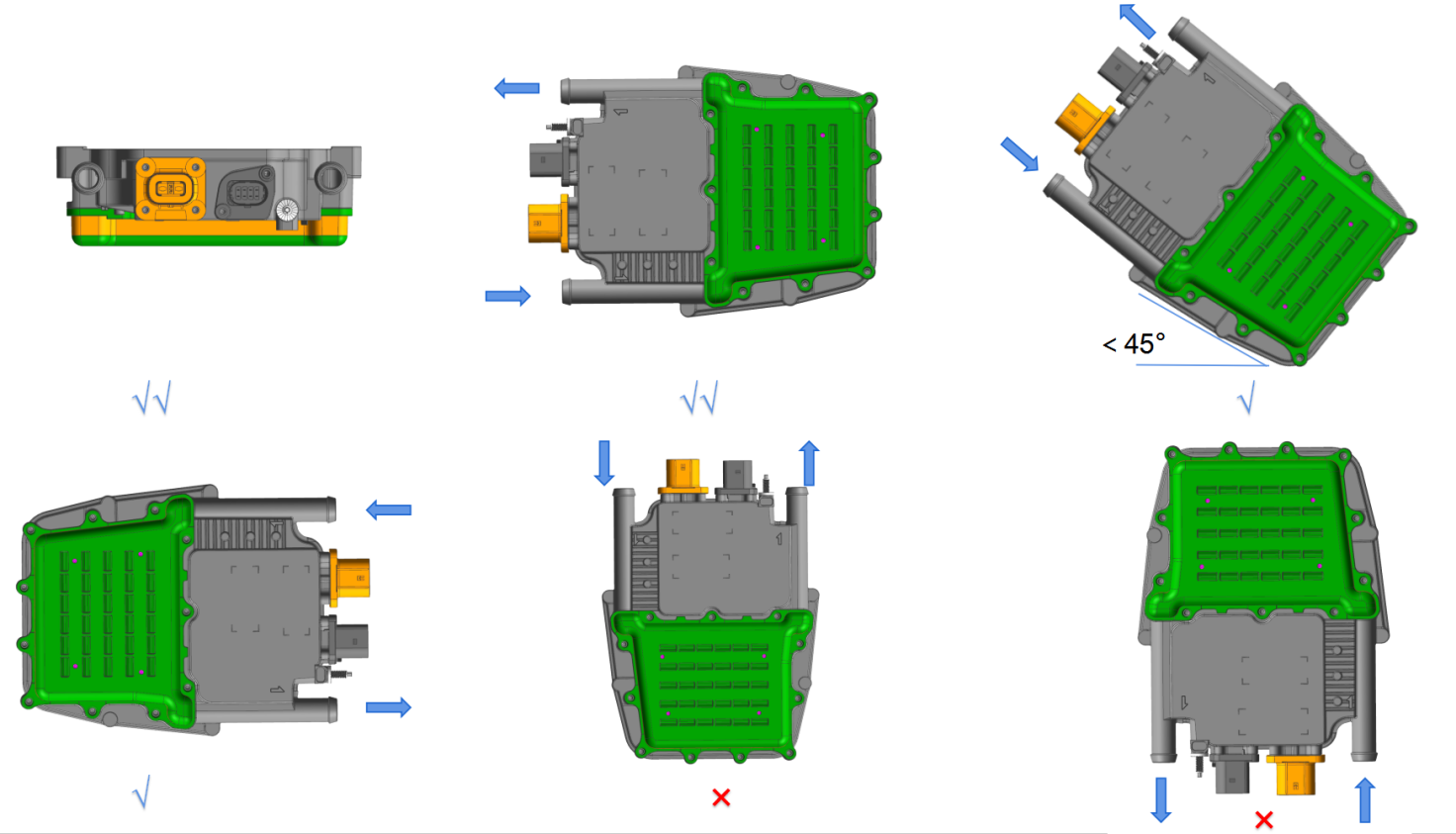
CE certificate


Application


Company Profile


Hebei Nanfeng Automobile Equipment (Group) Co.,Ltd is a group company with 6 factories, that specially produce parking heaters, parking air conditioners, electric vehicle heaters and heater parts for more than 30 years. We are the leading parking heater manufacturers in China.
Our factory's production units are equipped with high tech machineries, strict quality control testing devices and a team of professional technicians and engineers endorsing the quality and authenticity of our products.
Meeting the standards and demands of our customers have always been our top priority. It always encourages our experts to continuously brain storm, innovate, design and manufacture new products, impeccably suitable for the Chinese market and our customers from every nook of the world.
FAQ
1. What is a 7kw EV PTC heater?
The 7kw EV PTC heater is an electric vehicle (EV) heater that uses a positive temperature coefficient (PTC) heating element to generate heat for the vehicle interior.
2. How does the 7kw EV PTC heater work?
The PTC heating element in the 7kw EV heater works by increasing its resistance as it heats up, which limits the amount of current that can flow through it. This self-regulating feature makes PTC heaters efficient and safe to use in electric vehicles.
3. What are the benefits of using 7kw EV PTC heater?
One of the main benefits of using a 7kw EV PTC heater is its energy efficiency as it only consumes the amount of electricity required to maintain the desired temperature inside the vehicle. It provides fast, consistent heating even in cold weather.
4. Can the 7kw EV PTC heater be installed on any electric vehicle?
While many electric vehicles are compatible with PTC heaters, be sure to consult a professional to determine if a 7kw PTC heater is suitable for your specific vehicle.
5. How long does it take to install a 7kw EV PTC heater?
7kw EV PTC heater installation time may vary depending on the vehicle and the technician performing the installation. On average, it can take several hours to install a heater.
6. Is the 7kw EV PTC heater weatherproof?
Most 7kw EV PTC heaters are designed to be weatherproof and can withstand harsh environmental conditions, making them suitable for use in a variety of climates.
7. Can the 7kw EV PTC heater be used in extremely cold temperatures?
Yes, the 7kw EV PTC heater is designed to provide reliable heating even in extremely cold temperatures, ensuring the comfort of the vehicle's passengers.
8. What maintenance does the 7kw EV PTC heater require?
Regular maintenance such as cleaning and inspection is recommended to ensure the normal operation of the 7kw EV PTC heater. It is important to follow the manufacturer's maintenance guidelines.
9. Are there any safety precautions when using a 7kw EV PTC heater?
It is generally safe to use a 7kw EV PTC heater, but it is important to follow the manufacturer's instructions and safe operating guidelines. It is also important to have the heater installed by a qualified technician.
10. How to buy 7kw EV PTC heater?
7kw EV PTC heaters are available from authorized retailers, automotive suppliers or directly from the manufacturer. Before purchasing, always make sure the heater is compatible with your specific electric vehicle model.

